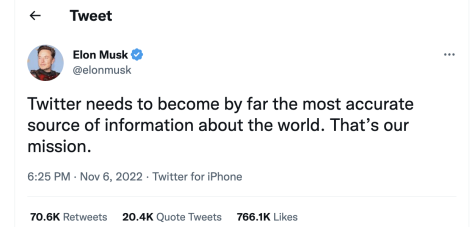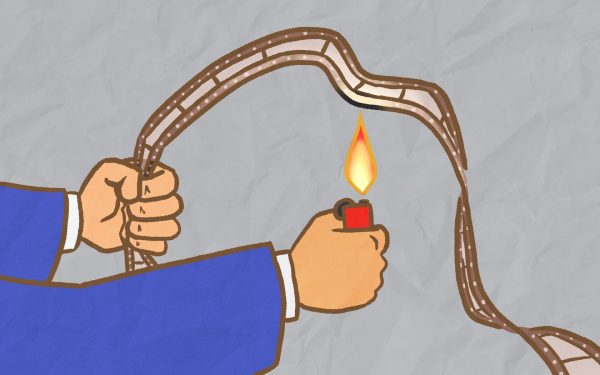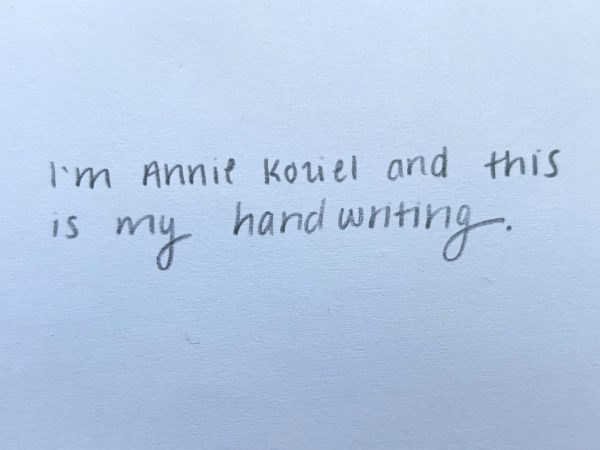OPINION: Is Twitter facing its downfall?

Credit: Erik Uebelacker/The DePaulia
Elon Musk, the CEO of Tesla, began the acquisition of Twitter on April 14, 2022. When the news first broke, many people were shocked and apprehensive about this change in leadership. Ideas surrounding censorship and hate speech are being debated. An app that has been around for over a decade is beginning to crumble.
In the past few weeks, there has been an uproar online due to drastic changes that have been made on Twitter. An increase in hate speech, banning parody accounts, having to pay about $8 for verification and even employees being needlessly fired have all contributed to Twitter’s decline after Musk acquired ownership.
Slurs have made quite the appearance as well. In October alone, the use of the “n” slur increased nearly 500% from the previous average, since Musk decided to loosen restrictions on the app in terms of language. He believes the app should have more leniency in terms of free speech.
“There needs to be a line that’s drawn,” Jenni Sitompul, an interdisciplinary artist and current student at SAIC said. “We need a group of people fact checking tweets. I do agree that a certain level of free speech should be accessible on online platforms, but digital boundaries need to be put in place and enforced to avoid harassment and violence.”

With the exponential increase of younger viewers on platforms originally intended for older audiences, some degree of censorship should be applied to avoid backlash or lawsuits. This should be prioritized especially when there have already been previous incidents online where something was posted uncensored and caused a scene on other popular apps. For instance, there was a recent shooting in Memphis a few months ago which was posted to Facebook live and not taken down immediately. This caused outrage by users and resulted in legal trouble.
Sam Moilanen, opinions editor at The DePaulia, was permanently banned last Monday for simply sharing her story regarding health insurance. Her post was not offensive in nature but was still taken down nonetheless. This behavior is contrary to what Musk originally claimed when sharing his goals for Twitter a few months ago.
In a tweet, Musk said, “free speech is the bedrock of a functioning democracy, and Twitter is the digital town square where matters vital to the future of humanity are debated.”
Musk claims he is against censorship and wants to allow a space for all users to freely speak, yet many are being silenced despite his statement, proving Musk’s intentions with this platform are inconsistent and hypocritical.
Tweets that may need to be flagged or censored will go untouched, and those speaking out against injustices or sharing their truths will be silenced. This control over one of social media’s most commonly used platforms completely changes the dynamic for social media users.
“I think that social media apps need to draw a line with freedom of speech,” Ana Esquivel, a Design Arts at DePaul said. “I understand sharing your opinions and finding like minded people, but once you start attempting to change people’s minds in a negative way or by forcing your thoughts onto people, that’s when something should be done to stop it.”
His rules for the platform have become specific, versatile and incoherent. Musk’s ideas are constantly changing depending on his personal feelings in relation to the person or tweet. This type of exclusive behavior towards an app that is widely used by people all over the world is a recipe for disaster. The inconsistencies, miscommunication and fake news this is creating is destroying the app from within.
A sense of community on a platform such as this one begins to dissolve when people with inappropriate and radical ideas have the liberty to post such grotesque remarks on an app open to the public. This obliterates Twitter’s credibility as well as Elon Musk.
“I wouldn’t want to be associated with the app anymore if it continues to go this direction,” Esquivel said.
With this becoming a bigger issue everyday, it sets a new precedent for social media apps. It opens up conversations about the levels of free speech and creative control on these influential platforms. It’s Twitter now, what’s next, TikTok? This is going to alter online etiquette on every popular app.






